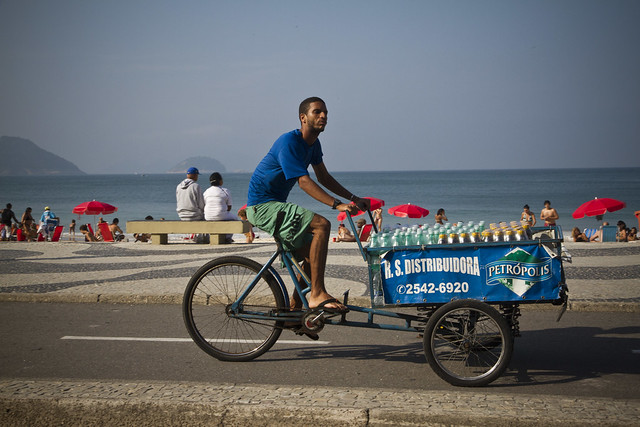deleted by creator
At this point we have to commit guerrilla warfare against the oversized, homicidal cars
In europe there was a movement to slash the tires of oversized SUVs. Wish that movement would extend to America
deleted by creator
The real problem is convincing people there is a problem. I grew up in suburban America and almost everyone got a car when they turned 16. A 15 minute drive was considered not that far away. My bus ride to school was about 45 minutes. I went to college in a large dense city and it opened my eyes to how things could be so much better. Unfortunately most people who live where I grow up would say “you’re going to get shot and die” if you get anywhere near a city.
The level of paranoia that suburbanites have about density is horrendously upsetting and intentional
Trying to tell a suburbanite that crime rates have fallen drastically over time is so damn hard
Just look at per capita crime rates. US cities are typically less dangerous than suburban areas.
New York City has a per capita crime rate of 6.3 per 100,000.
Huntsville, AL has a crime rate of 387 per 100,000.
And that difference was actually a huge surprise to me when I just looked it up. But the problem is people look at the raw number of crimes committed and think cities are so dangerous. It’s actually the opposite.
Does that distinguish between violent crime vs property crime? I always heard that violent crime is a little higher in cities, while property crime is a lot higher in suburbs, but I never bothered to fact check because the (dense city) neighborhood I grew up in only had one stabbing in 20 years, so it seemed safe enough…
I’m All for banning cars. But we need to make sure we don’t catch small business deliveries up in the crossfire. Commercial vehicles are still an absolute necessity without a massive change no one’s figured out how to accomplish yet. I’m thinking mostly in my city. Ban cars, let commercial trucks through.
Basically no one here has ever advocated for banning delivery vehicles, just private cars.
Yeah, I just meant the “weight restrictions” bullet point would catch all delivery vehicles up in the ban. That’s all I was saying.

I’m not convinced that wishing for tramways on every street is a smart move on behalf of all bikers, scooter riders, and others.
Source: my bike commute included streets with tramways.
Tramways on every other street! Gotta balance bikes and public transit.
Just a note that a lot of these would be very negatively impactful on many lower income level people who depend on what transportation they can manage. If there was a fast move to replace the needs with public infrastructure like rail and bus, then maybe the financial hit would be less for them. “Get a job within walking or bike” doesn’t always work out.
Saying “yea but it has to be done right” is such a load of wasted time and energy that you may as well not bother at all. You think people aren’t going to try to get it right? These aren’t the people you need to convince, they know this already.
I’m also curious as what “a lot” of these actually means because most of them don’t apply to poorer people in the slightest. The only ones I can think of are carbon taxes and weight taxes but:
- carbon taxes often have a rebate that either covers or exceeds an individual’s costs but hits the extreme users like companies with fleets.
- poor people buying large expensive vehicles really doesn’t make a lot of sense, now does it? It can happen at point of purchase, at least for a little bit, to both not be suddenly dumped on people AND encourage people to keep their cars for longer instead of swapping them out too regularly.
You’re not saying anything except, especially without any sort of explanation, that you don’t have a firm enough grasp of the situation to be making comments.
—
Universal speed limiters ARE a waste of time, of course, when we can just build our roads right to naturally slow people.
Trams on every streets would be a tremendous waste of money as well, but a fairly dense network would be pretty feasible.
We also don’t actually need bike lanes on every street, just on streets busy and fast enough to warrant separating the traffic.




